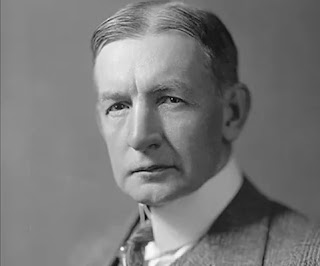Charles Gates Dawes (1865–1951)
Charles Gates Dawes (1865–1951) was an American banker, politician, and diplomat best known for his contributions to economics, finance, and public service. He achieved several notable accomplishments during his lifetime:
Dawes Plan: One of his most significant achievements was the Dawes Plan of 1924, which aimed to address the economic turmoil in Europe following World War I. The plan proposed a new schedule for reparations payments from Germany to the Allies and also involved providing loans to Germany to stabilize its economy. The Dawes Plan is often credited with temporarily stabilizing the German economy and contributing to a period of relative peace and economic recovery in Europe.
Vice Presidency: Dawes served as the 30th Vice President of the United States under President Calvin Coolidge from 1925 to 1929. During his time in office, he focused on economic and financial matters.
Nobel Peace Prize: Charles Gates Dawes and Sir Austen Chamberlain were awarded the Nobel Peace Prize in 1925 for their roles in negotiating the Dawes Plan. The Nobel Committee recognized Dawes for his efforts in promoting economic stability and cooperation among nations to prevent conflicts and maintain peace.
Dawes' Nobel Prize win reflected his role in addressing the aftermath of World War I and attempting to create a framework for economic stability in Europe. The Dawes Plan, although not a permanent solution, contributed to a period of relative peace and reduced tensions in the region, which was a significant achievement in the post-war era



Comments
Post a Comment